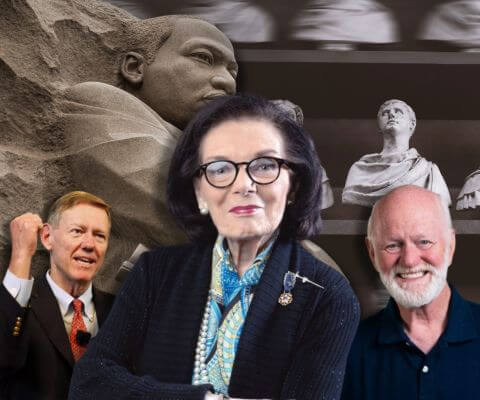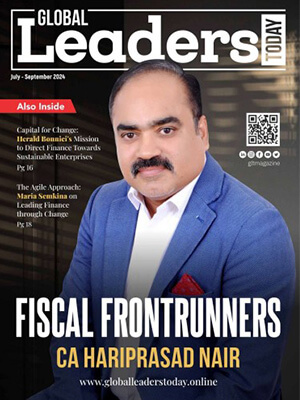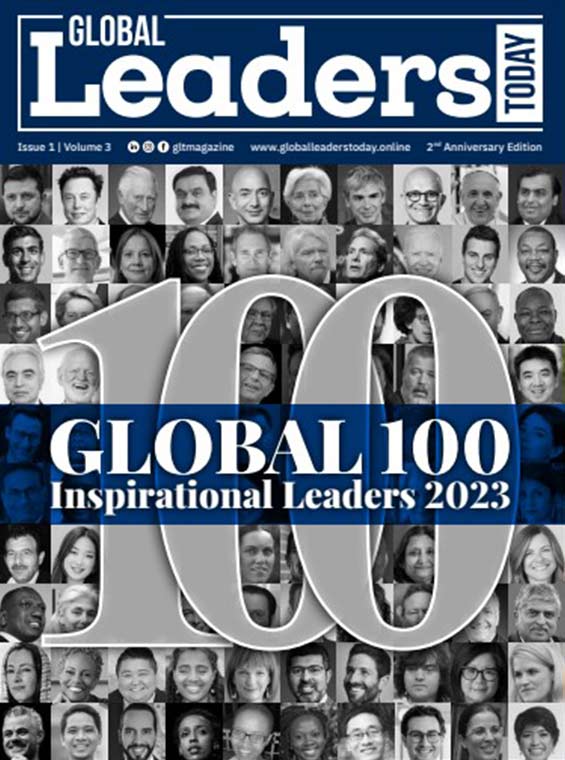- The Modern CFO Mindset: CA Hariprasad Nair on Collaboration, Innovation, and Growth
- Old Dog, New Tricks: Digitalising Age-Old Trade Finance Documents
- Tokenization: The NextGen of Global Financial Markets is Digital
- Capital for Change: Herald Bonnici’s Mission to Direct Finance Towards Sustainable Enterprises
- The Agile Approach: Maria Semkina on Leading Finance through Change
Category: Thought Leadership
Written by contributing writer Gavin Brown, Director, Speak With Impact
“Things are a lot different now. My confidence has taken a massive knock.”
“I spent a long time working from home and only had video conferencing, so it’s slightly frightening to be in a room full of real people again.”
These are just two statements from different people summing up perfectly an emerging problem that is niggling away at the business community.
It’s leaving no part of the world unaffected, and it infiltrates every level, all the way to the top.
The problem is this.
People just aren’t as confident speaking in front of others as they used to be.
And it’s not simply an issue facing inexperienced staff or new ventures.
Having supported firms all over the globe in recent years, it has become obvious to me that there is a severe public speaking dip, dragging down the quality and impact of pitches, presentations, and seminars.
People are just less comfortable, less confident, and less at ease with the situation in front of them.
The hard evidence
With that in mind, I commissioned a leading polling company in the UK to see if this was indeed the case.
The headline results and the breakdowns within them should give businesses pause for thought as we consider how to support people at all levels, especially those in the earlier stages of their careers.
We know from this research that one in four people in Britain has less confidence in speaking in front of people than before the pandemic.
Among those aged 18 to 44, that rises to about 40 percent.
There’s a gender divergence, too, with women more likely to have lost confidence (30 percent) than men (22 percent).
Now we have the polling data to confirm anecdotal evidence; the key is finding out what to do about it. Because if it’s happening in London, it’s happening in cities all over the Western world.
Lockdown changed the landscape
Lockdown took a gigantic toll on people’s mental health, altering how many have behaved since.
In that period, people didn’t see as many other faces in the flesh, meaning when they emerged back into the world, things seemed different and challenging.
Office workers, especially, became conditioned to interact on applications like Zoom.
Those whose work involves speaking outwards to groups, however small, became used to doing so slumped in a domestic chair staring into a screen full of small squares representing the faces of their colleagues, clients, or customers.
But presenting again in person is an entirely different skill that may need to be relearned now that the world is open again.
Even when people were returning to public settings again, they tended to do so with people they knew well – immediate friends and close family.
However, in a public speaking scenario, you are likely to be thrust into a situation with people you don’t know so well.
That explains some of the loss of confidence, as does the general mental health impact.
Even if someone is slightly more anxious than they used to be, that very quickly plays on the mind of someone facing up to a public speech.
People have always been nervous about such a task; growing anxiety will only worsen this.
Household income also appears to be a factor, with those under £20,000 far more likely to have suffered than those on and above £40,000.
What did people say?
But all of this is about more than just the speaker.
The behavior of others has changed. There’s more tension in the air – this is evident in a number of spheres of society, and the effects of the pandemic are likely to be one of the main factors for this.
The survey research backs this up.
I asked people why they had lost confidence, and many responded in great detail about the reasons behind it.
“I feel less confident in general after the pandemic, probably due to being at home and seeing fewer people,” said one.
Another added: “I developed anxiety during the pandemic.”
The person who answered, “I feel my confidence is lower, and I’m more aware of being criticized,” sums up twin issues facing people today.
Finding the solutions
This problem isn’t going to fix itself.
For businesses everywhere, action needs to be taken to ensure that people are more confident in dealing with those in and out of their organization.
It’s a crucial part of a growing economy to have people who are able to present strongly and pitch for new work.
Here are three tips to try.
- Make a point of holding eye contact with as many audience members as possible. We are so used to looking at a screen that many of us forget about eye contact.
- Stand one step closer to the audience to engage them – most people tend to be one step further back these days.
- Rehearse with minimal (or no) notes – many speakers relied on ‘hidden’ notes during Zoom/Teams calls
Confidence will drive recovery
As part of the economic recovery every country is pursuing, work must begin in building up the confidence of those starting out their careers or making their way up the ladder.
All businesses need a workforce confident and proud of what they have to offer.
And having the confidence to say as much in front of other people may well be more important than ever.
About the Author:
Gavin Brown is a public speaking expert who runs Speak With Impact from its headquarters in Edinburgh, UK.
He has been passionate and heavily engaged in public speaking for more than two decades, winning the JCI World Debating Competition twice.
Having worked as a litigator at a major law firm, he moved into politics, serving in the Scottish Parliament from 2007 to 2016. He held a number of positions, including Scotland’s shadow finance secretary.
He works with businesses across the world in delivering stylish and compelling presentations and speeches. In his spare time, he performs stand-up comedy.
“Leadership flows from inner character and integrity of ambition, which inspires others to lend themselves to your organization’s mission.” aptly articulated by Frances Hesselbein....
Written by contributing writer, David García González, Founder, GoLocalise As is likely to be the case for many businesses, this continuing constant uncertainty means persuading our clients to...
Written by Contributing Writer, Will Polston. In Thailand, people have devised a simple way to control an elephant. When the elephant is a baby, they tie it to a mature tree using a thick rope. Being a...
Written by contributing writer, Tom Williams, Principal, Innovation Consult. If you want to move past the business stage gates and bust through your growth ceilings, it could be said that you have one...
In today’s fast-paced business world, it’s not enough for leaders to focus solely on achieving specific goals. They must also have a clear purpose that guides their decisions and actions....
Written by contributing writer, Bethany Ainsley Imposter syndrome is extremely common, even among successful, famous and talented people. Studies have found that imposter syndrome will affect 70%...
-Written by Dr. Raul V. Rodriguez, Vice President, Woxsen University The future of leadership is a topic that has garnered much attention in recent years, as organizations and societies around the...
Written by contributing writer, David Galea, Director of Digital Leadership, Centigo Yes, running fast is key to gaining a competitive advantage in business, but do not be too impatient. Learn to...
Written by contributing writer, Roni H. Amiel The clinician of the future will encounter the patient of the future: an informed, empowered member of their own care team. Clinicians working in partnership...

















